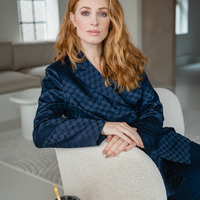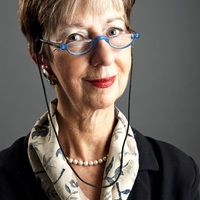
Angela Willemse
With over 26 years of experience in the fashion industry, Angela has balanced her career as a model with a passion for health education. In 2011, she obtained her Bachelor of Communications degree, followed by a Master of Science in Communication from VU University Amsterdam in 2013, specializing in Marketing & Health Education.
During her master’s studies, Angela launched greatbodyskin.com (Great Body & Skin), a not-for-profit platform focused on promoting healthy lifestyles for adolescent and young adult models through edutainment. At its peak, the platform attracted 50,000 unique visitors per month and became well-known among professional models in the Netherlands. While the platform is no longer active in its original form, it made a lasting impact as a resource for models seeking support, advice, and assistance. Angela’s academic research focused on models, eating disorders, and beauty standards.
In her research, Angela explored the use of serious games to treat eating addiction, the effects of information labels on images of thin models in the media, and the role of entertainment-education in influencing health behaviors among young models.
In addition to managing the platform, Angela provided live coaching and workshops for models at renowned agencies, helping young talents navigate the demands of the fashion industry while maintaining their health.
Today, Angela continues her work as a model (as of 2024) and is also a marketing and communications manager, using her expertise to make a broader impact.
During her master’s studies, Angela launched greatbodyskin.com (Great Body & Skin), a not-for-profit platform focused on promoting healthy lifestyles for adolescent and young adult models through edutainment. At its peak, the platform attracted 50,000 unique visitors per month and became well-known among professional models in the Netherlands. While the platform is no longer active in its original form, it made a lasting impact as a resource for models seeking support, advice, and assistance. Angela’s academic research focused on models, eating disorders, and beauty standards.
In her research, Angela explored the use of serious games to treat eating addiction, the effects of information labels on images of thin models in the media, and the role of entertainment-education in influencing health behaviors among young models.
In addition to managing the platform, Angela provided live coaching and workshops for models at renowned agencies, helping young talents navigate the demands of the fashion industry while maintaining their health.
Today, Angela continues her work as a model (as of 2024) and is also a marketing and communications manager, using her expertise to make a broader impact.
less
Related Authors
André Decoster
KU Leuven
Greta Noordenbos
Universiteit Leiden
Emmy Nederkoorn
Vrije Universiteit Amsterdam
Dragan Saric
Utrecht University
InterestsView All (15)


Uploads
Papers by Angela Willemse
Afbeeldingen van dunne modellen in de media zorgen voor een toename van de lichaamsontevredenheid, objectified body consciousness en sociale vergelijking van vrouwen. Deze negatieve effecten worden in verband gebracht met het ontstaan van extreem lijngedrag en eetstoornissymptomen. Het is daarom van belang deze effecten te reduceren. In dit onderzoek is gekeken of een informatief label deze effecten kan reduceren. Dit is getest door middel van een experimenteel post-test only design (N = 116) met drie condities (conditie 1 = neutraal, conditie 2 = normaliserend, conditie 3 = informatief label), waarbij naar het verschil op drie effecten werd gekeken (lichaamsontevredenheid, OBC en sociale vergelijking). Het neutrale label fungeerde hierbij als de controlegroep. Respondenten werden blootgesteld aan afbeeldingen van dunne modellen met één van de drie labels, waarbij een cover story het werkelijke doel van het onderzoek verhulde. Uit de resultaten van het onderzoek bleek echter dat een informatief label de negatieve effecten van afbeeldingen van dunne modellen niet kan reduceren.
Theses by Angela Willemse
Afbeeldingen van dunne modellen in de media zorgen voor een toename van de lichaamsontevredenheid, objectified body consciousness en sociale vergelijking van vrouwen. Deze negatieve effecten worden in verband gebracht met het ontstaan van extreem lijngedrag en eetstoornissymptomen. Het is daarom van belang deze effecten te reduceren. In dit onderzoek is gekeken of een informatief label deze effecten kan reduceren. Dit is getest door middel van een experimenteel post-test only design (N = 116) met drie condities (conditie 1 = neutraal, conditie 2 = normaliserend, conditie 3 = informatief label), waarbij naar het verschil op drie effecten werd gekeken (lichaamsontevredenheid, OBC en sociale vergelijking). Het neutrale label fungeerde hierbij als de controlegroep. Respondenten werden blootgesteld aan afbeeldingen van dunne modellen met één van de drie labels, waarbij een cover story het werkelijke doel van het onderzoek verhulde. Uit de resultaten van het onderzoek bleek echter dat een informatief label de negatieve effecten van afbeeldingen van dunne modellen niet kan reduceren.